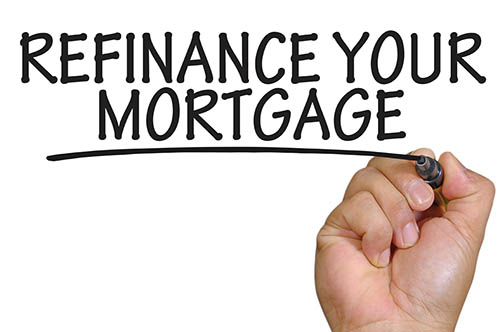Did You Know?: 4 Factors That Can Delay Your Mortgage Approval (and How to Avoid Them!)
 If you’re currently buying a home and are stressing about the kind of home to choose and which lender to go with, it can help to clear up some of the confusion surrounding the mortgage process. While mortgage applications are assessed on a case-by-case basis, here are some factors you’ll want to avoid so the timeline of your approval isn’t negatively impacted.
If you’re currently buying a home and are stressing about the kind of home to choose and which lender to go with, it can help to clear up some of the confusion surrounding the mortgage process. While mortgage applications are assessed on a case-by-case basis, here are some factors you’ll want to avoid so the timeline of your approval isn’t negatively impacted.
Your Employment Status
It goes without saying that the amount you bring in each month is a huge factor towards how much house you can afford, so having a part-time job, being self employed or even being unemployed can adversely impact your application. Instead of leaving this factor up to chance, make sure you have a job that will more than cover your monthly payment or at least the savings in the bank to take the pressure off.
The Debt You Carry
The amount of your debt has an impact on the house you can afford, but debts whether from auto loans or credit cards; can still adversely impact the lender’s perception of your finances. Before buying a home, you may want to pay down some of your debt or hash out a monthly budget so you’ll have more certainty when it comes to application time.
Your Credit Report
There are few things that will have a more marked impact on your mortgage approval than your credit history, so whether or not you have good credit will play into your application approval. While many people shy away from their credit report, ensure you look it over before submitting your application so you know what you’re dealing with and can correct any mistakes.
The Down Payment Amount
You’ve probably heard that 20 is the magic percentage to put down, and while this number isn’t needed to buy a home, it can be the right number if you have high debt or a negative credit history. While you may want to buy right away, waiting and saving up may actually improve your odds of approval and save you money in the long run.
There are many factors involved in the mortgage process and many of these things have the ability to slow down your application. But, by being aware of your credit and having a 20 percent down payment saved up, you may be able to speed up the process. If you’re close to submitting your mortgage application, contact your trusted mortgage professionals for more information.

 When it comes to your mortgage, there are a lot of key terms that are important for every homebuyer to know, and this is no less true than when it comes to refinancing your most important investment. Instead of leaving what’s unknown up to chance, it’s important to be aware of exactly what you’re looking at so you can get the best mortgage product available. If you’re currently considering refinancing and don’t want to get snared by unknown terminology, here are some terms you’ll need to watch out for.
When it comes to your mortgage, there are a lot of key terms that are important for every homebuyer to know, and this is no less true than when it comes to refinancing your most important investment. Instead of leaving what’s unknown up to chance, it’s important to be aware of exactly what you’re looking at so you can get the best mortgage product available. If you’re currently considering refinancing and don’t want to get snared by unknown terminology, here are some terms you’ll need to watch out for. Curb appeal, or how your home looks from the street, is an essential part of preparing to sell your house. It’s also where comparison with your neighbors’ homes is inescapable which poses a problem if you’re both on the market. Read on for five ways to boost your own curb appeal.
Curb appeal, or how your home looks from the street, is an essential part of preparing to sell your house. It’s also where comparison with your neighbors’ homes is inescapable which poses a problem if you’re both on the market. Read on for five ways to boost your own curb appeal.